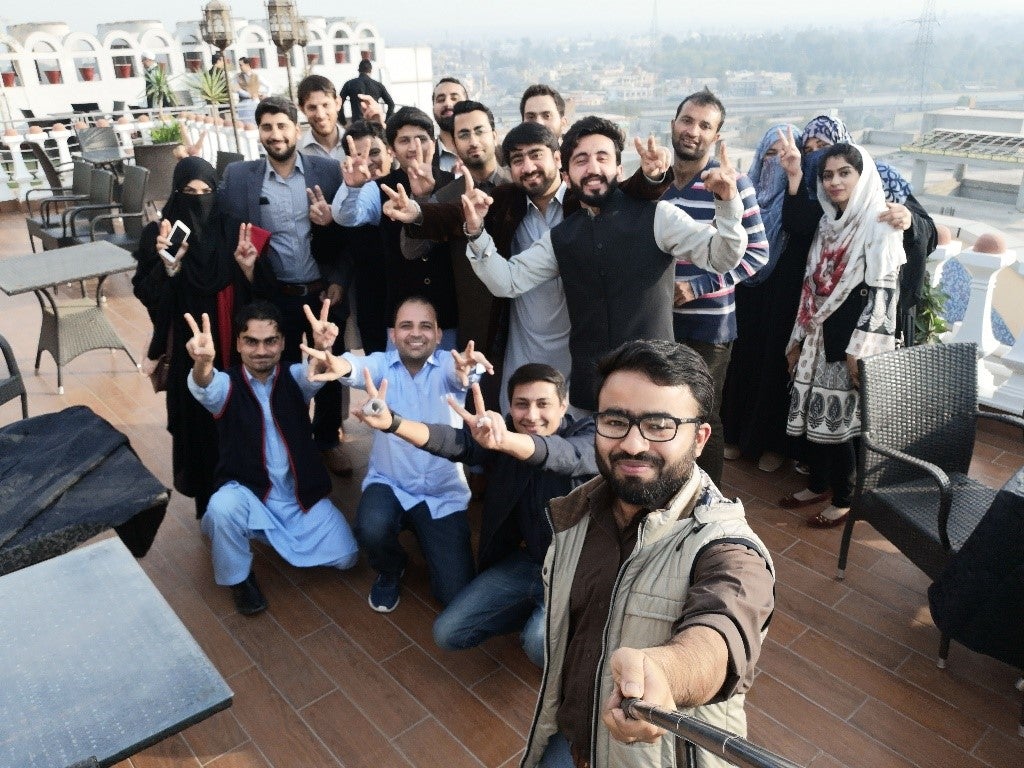
Khyber Pakhtunkhwa (KP), one of Pakistan’s most underserved provinces, is emerging from decades of conflict and has turned to the digital economy to boost economic growth and provide jobs to its youth.
Since 2013, the World Bank and its partners have helped the Khyber Pakhtunkhwa Information Technology Board (KPITB) build a strategy to bring the province into the digital age and improve technology-related skills and governance.
These early efforts later morphed into an even closer partnership that aims to foster hundreds of digital jobs for youth and kickstart infrastructure projects to attract technology investments across the province.
One outcome of this partnership is the successful KP Government Innovation Fellowship Program which is co-sponsored by Code for Pakistan.
Since 2014, the program has linked up highly talented technologists with government agencies to help these institutions become more user-centric and transparent, as well as deliver better services to citizens . Twenty fellows divided into five teams join each cycle of the program.
Based on their host agency’s needs, each group may bring expertise in web or mobile app development, graphic design, content, user experience, or networks.
During the first month, fellows learn how government works as they interact with department staff and stakeholders to understand their problems. Next, they propose solutions and develop prototypes, which they then test and deploy in the final two months.
During their tenure, fellows actively collaborate and train government staff to ensure their solutions are properly used and sustained.
To date, four fellowship cycles have produced 70 graduates, who earned great experience within the government.
Overall, the tech fellows have created 21 digital solutions for 16 different provincial departments such as the KP Traffic Police, the Bureau of Statistics, the Water and Sanitation Services, and the Provincial Disaster Management Authority, among many others.
After graduation, more than half of the fellows found jobs in the government or private sector, while about a third have become digital entrepreneurs or freelancers. The rest have journeyed on to higher education as students or lecturers.
As a unique alumni network with expertise in civic technology, graduates have also become mentors to prospective fellows. As one 2018 fellow alumni, Marina Khan, said, “My experience of working with the government department has been great so far and made me grasp an understanding of their workspace and technicalities. I would acknowledge that this journey has already started teaching me the science of breaking out of my comfort zone. People around me witness the improved patterns of my personality day by day. This fellowship is undoubtedly going to be a life-changing experience.”
While gaining hands-on training and jobs, fellows have ushered in a profound technology shift within the Pakistan government agencies that resulted in better public services for millions of citizens across KP. This success has not gone unnoticed.
In 2018, more than 50 departments expressed interest in the program, and over 30 submitted ‘problem statements’ to be addressed by the new cohort of fellows. And no surprise, acceptance into the fellowship has become highly competitive.
When the fourth program cycle opened last year, 5,802 young technologists, with expertise in software and mobile app development, graphic design, content writing, and user experience, sent in their applications from all over Pakistan.
The fellowship program is now housed in the Government Innovation Lab (GIL), a state-of-the-art coworking space established by KPITB under the umbrella of its Durshal network.
Fellows receive a monthly stipend, along with mentorship and civic and government innovation training in digital technologies that is unparalleled in Pakistan.
More details about the program, selection criteria and the application process for future cycles can be found here.



Join the Conversation